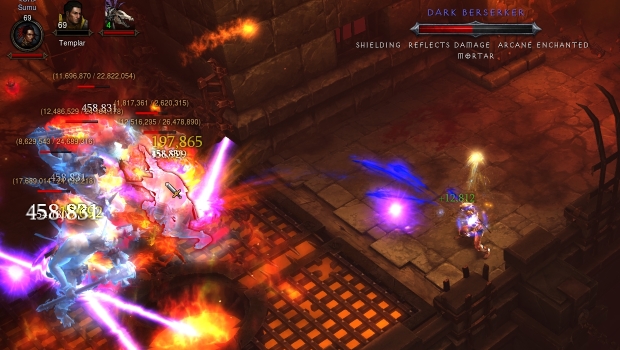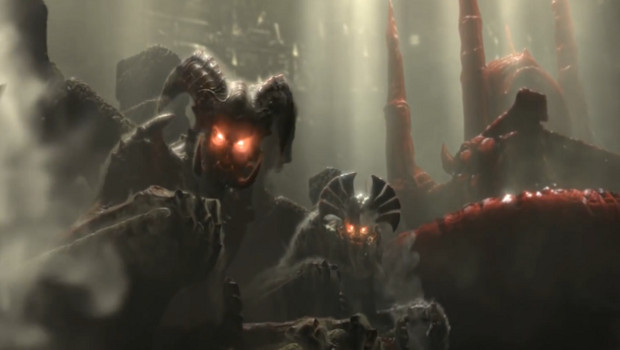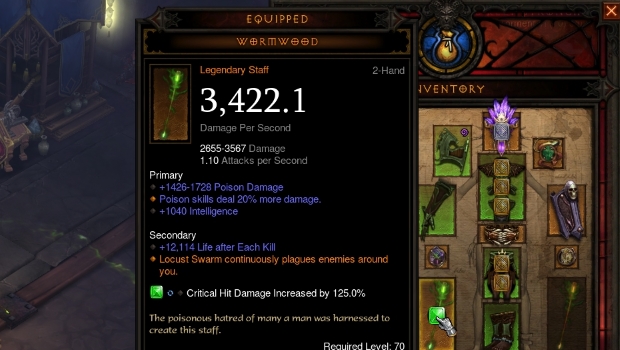

In Azeroth, each new raiding tier brings a new set of gear but makes the old tier less important. In Sanctuary, each new Season works almost like a new expansion for Hearthstone — it just adds more gear to bring more legendary combination into play. Patch 2.3 brought a new twist to the game where you get to equip the powers of three items without actually equipping the items themselves — almost like adding three additional gear slots to your character. While some sites that aggregate popular choices haven’t quite caught up to the latest patch, it’s easy to see repeat cubed powers crop up across various popular class builds.
The Furnace shows up a lot in nearly every class. The legendary two-handed mace has the hefty cubed power of “Increases damage against elites by 50%.” The Furnace is applicable across many build types, as high-end builds focus on hard elite packs in Greater Rifts to farming Death’s Breath, the crafting material that drops only from elite packs.
In-geom the legendary one-handed sword also involves elite kills. It makes a popular appearance in class builds that include major cooldown abilities, for its legendary power is “Your skill cooldowns are reduced by 10 seconds for 15 seconds after killing an elite pack.” While In-geom doesn’t do as much for the beginning player as Furnace does, it means your cooldowns are up more often as you venture into higher rifts.
After The Furnace and In-geom, the cubed weapon of choice fans out into class-specific build favorites or complements. Often, the weapons belong to class-only types, like daibos for Monks and flails for Crusaders.
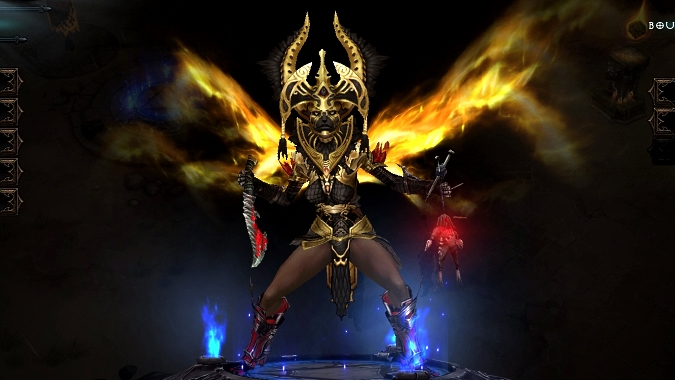
Witch Doctors: Alternative cubed weapons include the staff Wormwood and ceremonial knives Starmetal Kukri or Dagger of Darts. Cubing Wormwood allows for the Jade Harvester set’s DoT build to still work but with either a more powerful two-handed weapon or perhaps a one-handed weapon paired with a mojo. Dagger of Darts and the rarer Starmetal Kukri both involve the powerful fetish builds played with Carnevil; Helltooth builds tend to stick to In-geom.
Wizard: Wizards like to build around elemental damage themes, so their cubed weapon powers naturally follow that direction. Fulminator and Schaefer’s Hammer make appearances in Lightning-based builds, Cold builds see Rimeheart, and Firebird builds like to use Grand Vizier.
Monk: Monks love to cube In-geom, but they also love the daibo Flow of Eternity for use with the new set Uliana’s Stratagem class set. Another daibo Flying Dragon doubles attack speed and Fist of Az’Turrasq buffs the damage of Exploding Palm, another favorite Monk ability.
Demon Hunter: The choice of weapon for the double-resourced class splits almost evenly along class set lines. Using the oldie but goldie Natalya’s Vengeance class set, In-geom is the favorite. But if you want to try out the revamped Unhallowed Essences, you’ll want to cube a Calamity hand crossbow. The free Marked for Death application to every enemy you hit works well with the build’s focus on using Multishot.
Crusader: After the Furnace, the one-handed flail Johanna’s Argument is a favorite to use with the new class set Seeker of the Light, both focusing on using the Blessed Hammer ability. Shield Bash builds that use the class set Roland’s Legacy prefer the two-handed sword Blood Brother because of the way it turns blocking into an offensive move.
Barbarian: Occasionally, a build may pick up a mighty weapon which has a power that features a secondary ability. However, the Furnace is king in nearly every popular Barbarian build, from the spin-to-win Whirlwind build to Hammer of the Ancients (HotA).
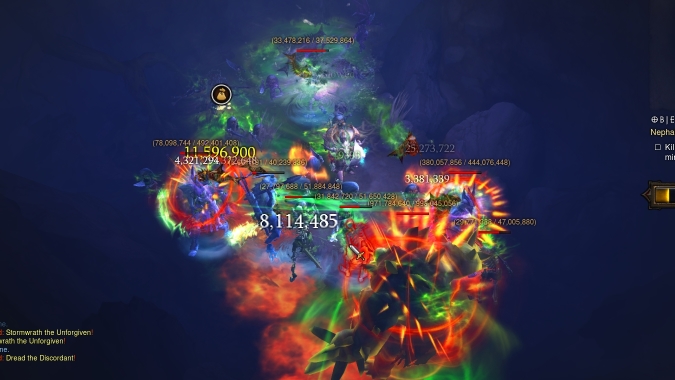
The armor category is the Cube category with the widest range of slots. Unlike the dominance of the weapon category by the Furnace, the cubed choice for armor varies depending on the content goal. High-play endgame activities like Greater Rifts usually involve class-specific armor which legendary powers focus on class abilities, while activities like farming bounties or Death’s Breath typically involve very generic, all-class armor items.
Nemesis Bracers are a favorite of Monks and Barbarians, but they dominate every build related to farming Death’s Breath. The legendary power “Shrines and Pylons will spawn an enemy champion” guarantees more opportunities for Death’s Breath, which are dropped only by elites. Shrines occur in every content while Pylons particularly feature in Greater Rifts, so the farming isn’t restricted to one content area.
Two other cross-class favorites are Cindercoat and Hexing Pants of Mr. Yan. Cindercoat reduces the resource cost of Fire skills by a third, so it shows up often in Wizard, Demon Hunter, and Crusader builds where Fire is a favorite elemental damage theme. Hexing Pants of Mr. Yan flip the traditional movement problem around: moving boosts your damage while standing still reduces it. Continuous movement assumes that you’re constantly pulling monsters, which results in speedy class builds or dodgy glass cannons that use it.
Crusaders and Demon Hunters largely stick to Cindercoat and Hexing Pants. Barbarians and Monks have an arsenal of bracers that they prefer for armor variations. Wizards prefer Wizard Hats in addition to Cindercoat and Hexing Pants, while Witch Doctors almost exclusively prefer Voodoo Masks.
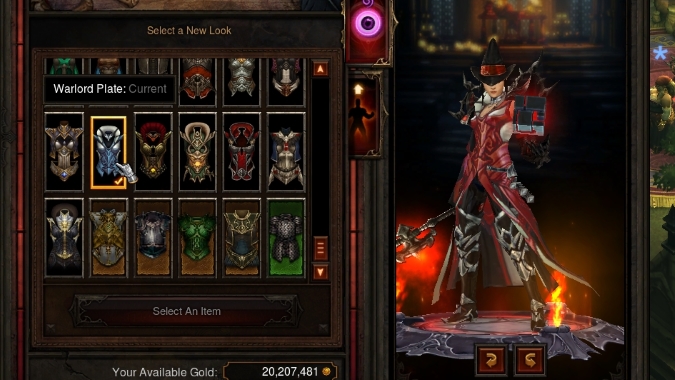
Hardcore characters may start off using an amulet for the third cubed slot. Rakoff’s Glass of Life provides more health globes for the player to use. There are a few amulets that prevent all damage of a certain elemental school and instead heal the player for a portion of the intended damage:
Mara’s and Julia’s are often seen when this amulet cubing theme is used. Arcane frogger is possibly the most annoying of the elite elemental affixes while Poison is the next most likely to cover the entire floor for a long duration fight.
However, when death is less permanent, rings are all over this cubed slot. Although Monks have a build that features Broken Promises, there are three rings that dominate the cubed jewelry choice for all classes.
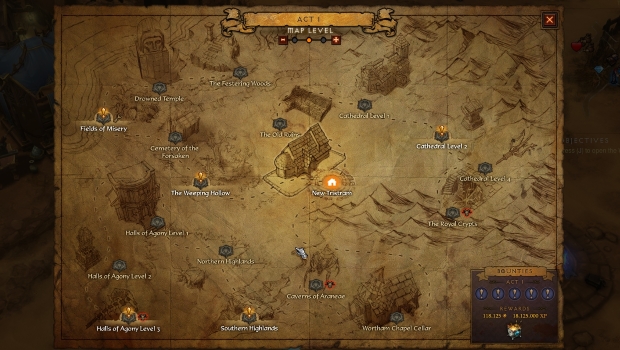
Ring of Royal Grandeur (RoRG) reduces the number of items needed for set bonuses by 1 (to a minimum of 2), which allows for builds that mix two or more sets to be possible. It also makes for a great beginner ring and cube power; it’s easily farmable from the Act 1 bounty caches and it allows fresh 70 characters to start using set bonuses before necessarily having all the pieces. This means easy introduction sets like Aughild’s can take off with just two pieces, though it won’t do anything for a two-set like Focus and Restraint or Krelm’s belt and bracers.
Obsidian Ring of the Zodiac makes the next favorite. Obsidian is much like In-geom, where it performs a specific cooldown reduction bonus: “Reduce the remaining cooldown of one of your skills by 1 second when you hit with a resource-spending attack.” Unlike In-geom which reduces the cooldown of all skills by the same amount, Obsidian picks a random ability with a cooldown. Obsidian is great for a build with one important cooldown, but more cooldowns diminish the ring’s effect unless you’re constantly pulling massive packs of monsters.
Convention of the Elements is the final cubed ring favorite, offering a pure damage boost for an elemental school in an alphabetical rotation. Usually this ring is cubed so that the worn rings can be rolled with more defensive stats than usual. Often a cubed Convention with equipped defensive rings will outperform if not equal a cubed Unity with equipped offensive rings. Convention has the added bonus of only needing one of itself to work, where a second Unity needs to be worn by at least your follower if not one of your other group members.
